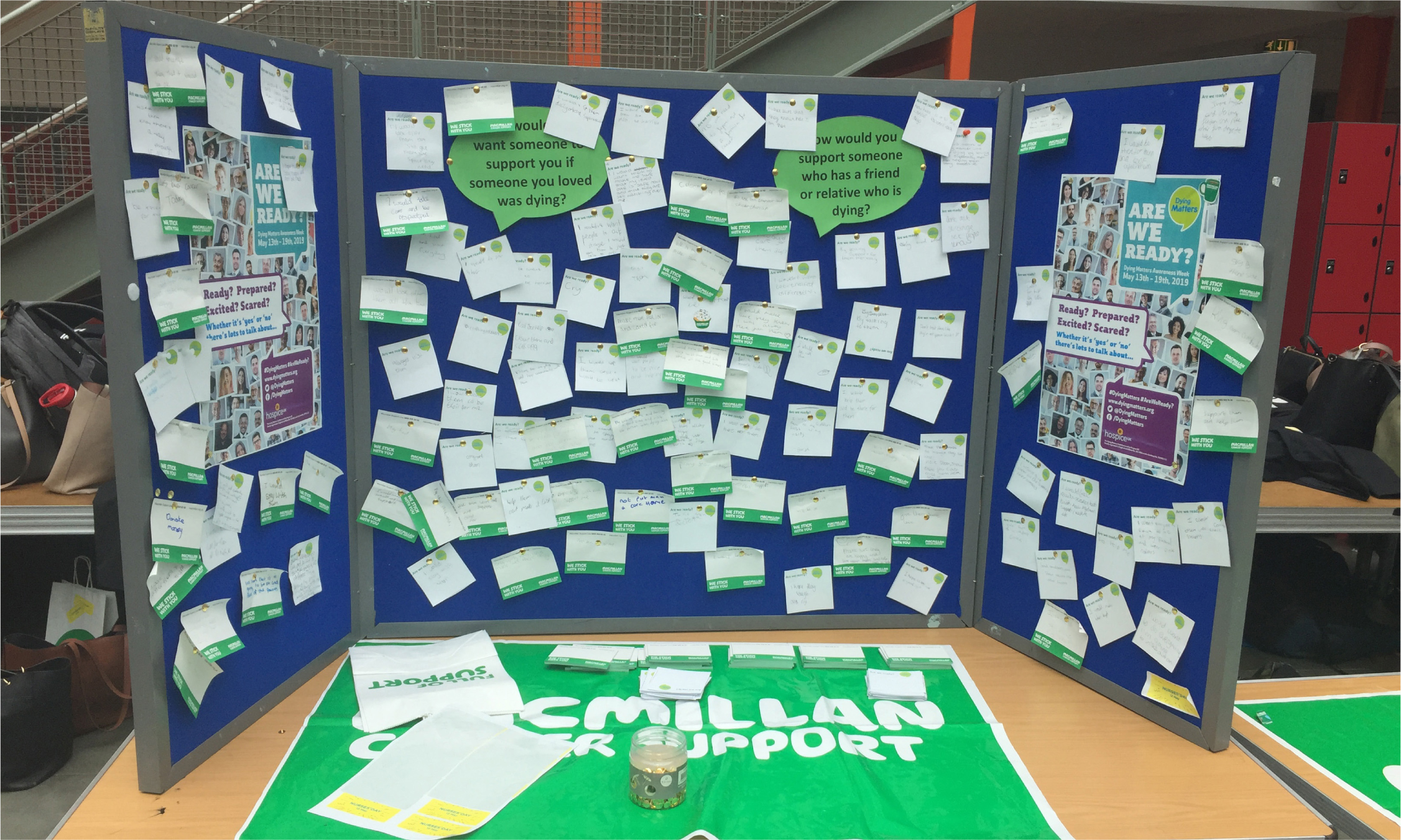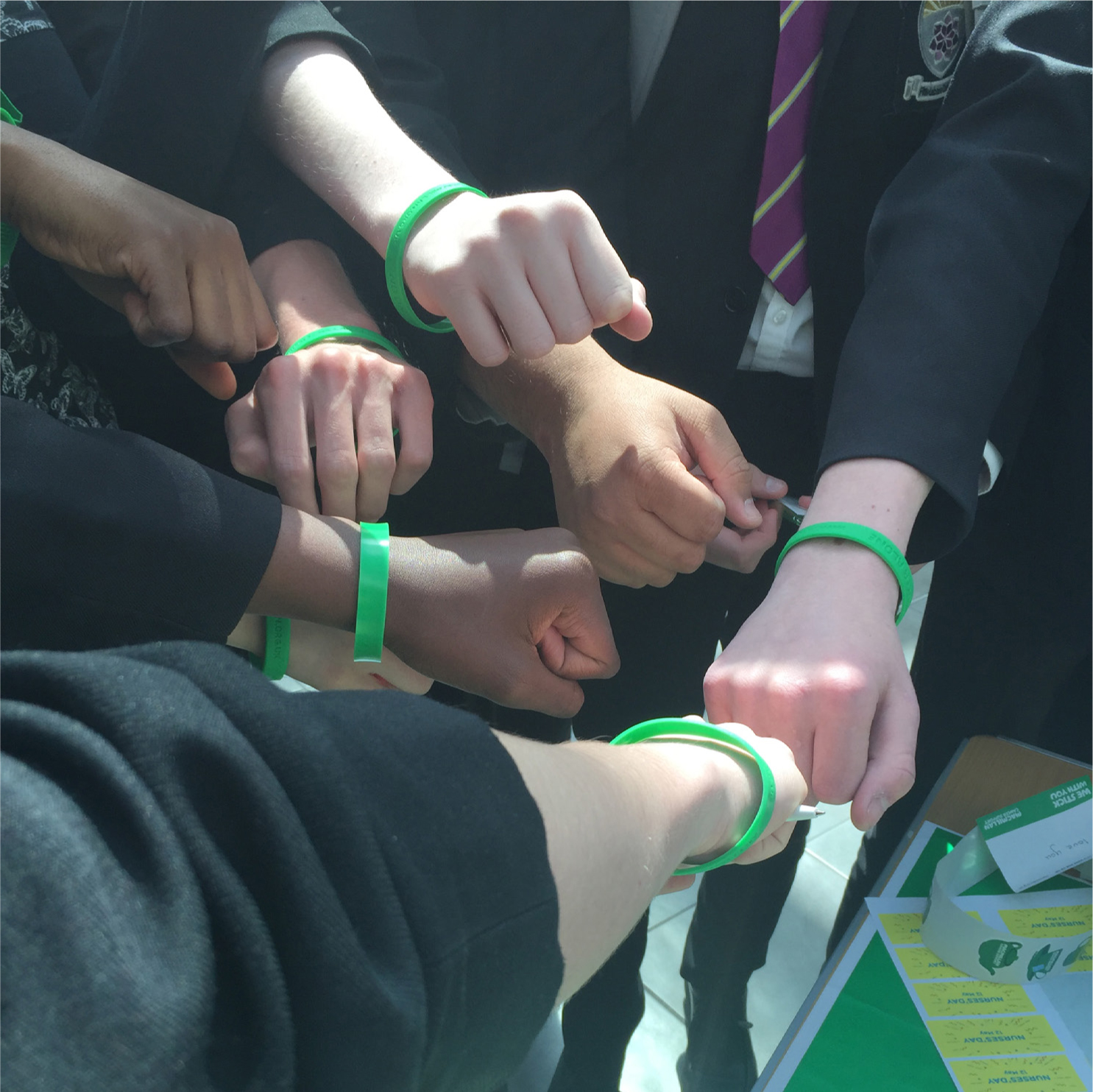The Ambitions for Palliative and End of Life Care Partnership (2015) established a national framework urging local NHS organisations and authorities to act to improve end of life care for people of all ages. The framework sets out six ambitions supporting the care of patients approaching end of life, these build upon the foundation of the End of Life Care Strategy (2008).
End of life care has been under the spotlight and many improvements have been made over the years. Poor communication, however, remains a topic that is highlighted by many (Hanna et al, 2009). Talking to children about death, dying and bereavement has often been seen as a taboo subject. We know that death is 100% certain. We also know that children often worry that their parents or those close to them may die. Therefore, why do we not talk more openly with children? Dame Cicely Saunders' famous quote ‘How people die remains in the memory of those who live on’ (1984), prompt us to ensure that everyone has a good death. However, children can often be forgotten when discussing death, dying and bereavement.
Over time we have heard anecdotal reports from adults who were bereaved as children. These include feelings of isolation or being left out of discussions, especially regarding the care and imminent death of someone close to them. While talking to children during this project, we have affirmed that children still feel excluded from these important conversations. In recognition of these findings, we firmly believe that there is an appetite for change to the school curriculum.
Feuchtwang (2016) explored opening up the conversations about death in schools and considers the factors that make adults ‘shy away from talking to children about death’. She suggests that it is our own fears of upsetting children and being upset ourselves that inhibits us from having these conversations. Lack of confidence or unwillingness to talk to children about this highly emotive subject can not only cause confusion and upset at the time but may add to a difficult and complicated bereavement process.
Buchwald et al (2011) investigated how children handle life when a mother or father is dying and how their ‘safe haven’ of home is transformed into a ‘death's waiting room’. They concluded that avoiding talking to children will not protect them from their thoughts about death and we should actively encourage these discussions. Child Bereavement UK (2012) advocates an open and honest approach when discussing death and bereavement with children. The charity purports that schools and communities should be equipped to offer support to children, young people and their families.
Our school project began with a telephone call to the lay chaplain at Cardinal Hume Catholic School, which is the local secondary school adjacent to the hospital. We enquired how we could best support and encourage young people to talk about death, dying and bereavement. We also wanted to know how we could help pupils to support each other when a family member, teacher or school friend are faced with a palliative illness.
Previous efforts to involve schools with ‘Dying Matters’ events had failed. Dying Matters is a coalition of individual and organisational members across England and Wales, which aims to help people talk more openly about dying, death and bereavement, and to make plans for the end of life. Every year in May, Dying Matters hosts an awareness week, which gives us an unparalleled opportunity to place the importance of talking about dying, death and bereavement firmly on the national agenda. However after numerous discussions we found that May was not a good month for secondary schools to participate as they were usually very busy supporting pupils with planning for examinations. Therefore we worked creatively with the school to plan for ‘Dying Matters’ events throughout the year.
‘We … know that children often worry that their parents or those close to them may die. Therefore, why do we not talk more openly with children?’
 The display board with students' answers
The display board with students' answers
With this in mind, the specialist palliative care team within Gateshead NHS Foundation Trust shared a vision to support local secondary schools. We hoped to highlight the need for open and honest communication with children regarding this highly emotive subject.
The specialist palliative care team initially met with pastoral staff and the chaplain at Cardinal Hume Catholic School to look at how we could support and raise awareness with pupils and staff about the ‘Dying Matters’ event. Following various consultations with the school it was agreed that the specialist palliative care team would support both a ‘Dying Matters’ event and a ‘Macmillan Coffee Morning’ within the school. These events have raised the profile of communication and talking openly and honestly, and have strengthened links with the school to help to break the taboo of talking about death, dying and bereavement with pupils.
The school project is all about getting young people to talk more openly about death, dying and bereavement, which is a very challenging thing for anyone to face, let alone a young person.
We decided to run an event at the school and hoped to raise awareness of the need to talk and share with others. All the pupils and staff were made aware that the specialist palliative care team would be visiting the school. Using a display board, we encouraged pupils to answer these three important questions:
- Do you think children should be involved in talking about death, dying and bereavement?
- How would you support someone who has a friend or a relative who is dying?
- How would you want someone to support you if you had a friend or relative who was dying?
The idea was to provide an opportunity for pupils and staff to talk with the specialist palliative care team and ask questions. The display board was strategically placed so that all pupils had to pass to get to the dinner hall. Pupils were enticed to participate with the offer of Macmillan merchandise (i.e. pens, key rings, stickers and information regarding cancer, death, dying and bereavement). We were overwhelmed with the response from the pupils who positively embraced the day. We soon realised that the children did not need enticing to talk. Without exception all of the children stated that they did want to be involved in talking about death, dying and bereavement. Following the event, we captured all of the sentiments and replies to the questions and collated them together in a book which we gifted to the school.
The specialist palliative care team have become part of the school family. We have held further events and supported pupils with career and university advice in addition to volunteering opportunities. We are extremely proud to have collaborated with this school and have successfully supported sixth form pupils with volunteering opportunities not only within the trust but within the in-patient palliative care unit. Traditionally it can be difficult to secure volunteering experiences while still at school as it can be perceived that young volunteers may be too immature to work in these environments. As a specialist palliative care team, we feel that our youth are ideally placed to support our patients bringing with them vitality and joy. One student stated that working within the in-patient palliative care unit meant everything to her. She said ‘It's the little things that make a huge difference. This volunteering experience has kept me motivated to study to fulfil my dream to become a doctor.’ It has been agreed that we have all benefitted from this collaboration.
One of the highlights of our involvement with the school was an invitation to join an assembly for the sixth form pupils. They presented us with comfort bags, which they had filled with toiletries, gifts and notes of encouragement for our patients and their families. We have also been asked to teach on the sixth form Health and Social Care A level curriculum.
Following the success with Cardinal Hume Catholic School, we decided to offer this support to other schools throughout Gateshead. As a result of this project, we were invited to attend the Gateshead Association of Secondary Headteachers meeting. At this meeting we gave an update on the project and presented a poster that we submitted and exhibited at the Macmillan Innovation and Excellence Awards in 2019. All of the headteachers signed up to replicate this work within their schools and agreed to nominate a teacher to link with a member of our specialist palliative care team. We are now in a position where we have established links with all the Gateshead secondary schools and are looking to develop this work further. With the support of our palliative care consultants we aim to support the school curriculum in Gateshead.
By addressing the needs of school children and raising the profile of death, dying and bereavement in schools we hope to encourage open and honest communication. We aim to facilitate conversations between families who are already facing uncertain times and break the taboo of including children within these important discussions and decisions.
The overall aim of this project is to develop and replicate these co-curricular activities within the remaining secondary schools in Gateshead. We would also like to consider how this initiative could be replicated nationally with the aim of improving communication and raising the profile of talking to children about this sensitive subject. The aspiration is to support all schools nationally by facilitating palliative and end of life care education within the school curriculum.



